- Home
- Joseph Conrad
Heart of Darkness and Selected Short Fiction
Heart of Darkness and Selected Short Fiction Read online
Table of Contents
FROM THE PAGES OF HEART OF DARKNESS AND SELECTED SHORT FICTION
Title Page
Copyright Page
JOSEPH CONRAD
THE WORLD OF JOSEPH CONRAD
Introduction
A NOTE ON THE TEXTS
AUTHOR’S NOTE
YOUTH
HEART OF DARKNESS
- I -
-II-
- III -
AMY FOSTER
THE SECRET SHARER
—I—
—II—
ENDNOTES
INSPIRED BY HEART OF DARKNESS
COMMENTS & QUESTIONS
FOR FURTHER READING
FROM THE PAGES OF HEART OF DARKNESS AND SELECTED SHORT FICTION
This could have occurred nowhere but in England, where men and sea interpenetrate, so to speak—the sea entering into the life of most men, and the men knowing something or everything about the sea, in the way of amusement, of travel, or of bread-winning. (from “Youth,” page 7)
Only a moment; a moment of strength, of romance, of glamour—of youth! (from “Youth,” page 36)
What greatness had not floated on the ebb of that river into the mystery of an unknown earth! ... The dreams of men, the seed of commonwealths, the germs of empires. (from Heart of Darkness, page 39)
The conquest of the earth, which mostly means the taking it away from those who have a different complexion or slightly flatter noses than ourselves, is not a pretty thing when you look into it too much.
(from Heart of Darkness, page 51 )
In and out of rivers, streams of death in life, whose banks were rotting into mud, whose waters, thickened into slime, invaded the contorted mangroves, that seemed to writhe at us in the extremity of an impotent despair. Nowhere did we stop long enough to get a particularized impression, but the general sense of vague and oppressive wonder grew upon me. It was like a weary pilgrimage amongst hints for nightmares.
(from Heart of Darkness, page 50)
They were dying slowly—it was very clear. They were not enemies, they were not criminals, they were nothing earthly now,—nothing but black shadows of disease and starvation, lying confusedly in the greenish gloom. (from Heart of Darkness, page 53)
It is impossible to convey the life-sensation of any given epoch of one’s existence—that which makes its truth, its meaning—its subtle and penetrating essence. It is impossible. We live, as we dream—alone.
(from Heart of Darkness, page 65)
I don’t like work—no man does—but I like what is in the work,—the chance to find yourself. Your own reality—for yourself, not for others—what no other man can ever know. They can only see the mere show, and never can tell what it really means.
(from Heart of Darkness, page 66)
The reaches opened before us and closed behind, as if the forest had stepped leisurely across the water to bar the way for our return. We penetrated deeper and deeper into the heart of darkness.
(from Heart of Darkness, page 75)
Published by Barnes & Noble Books
122 Fifth Avenue
New York, NY 10011
www.barnesandnoble.com/classics
Heart of Darkness and “Youth” were originally published in Blackwood’s Edinburgh
Magazine (in 1899 and 1898, respectively), and together collected in volume form
in 1902. “Amy Foster” was first published in 1901 in the Illustrated London News,
and “The Secret Sharer” first appeared in Harper’s Magazine in 1910.
The present texts derive from Doubleday’s collected editions of
Conrad’s works, published in 1920-1921.
Originally published in mass market format in 2003 by Barnes & Noble Classics
with new Introduction, Note on the Texts, Map, Notes, Biography, Chronology,
Inspired By, Comments & Questions, and For Further Reading.
This trade paperback edition published in 2008.
Introduction, A Note on the Texts, Footnotes,
Endnotes, and For Further Reading
Copyright @ 2003 by A. Michael Matin.
Note on Joseph Conrad, Map of Congo Free State, The World of Joseph Conrad,
Inspired by Heart of Darkness, and Comments & Questions
Copyright @ 2003 by Barnes & Noble, Inc.
All rights reserved. No part of this publication may be reproduced or
transmitted in any form or by any means, electronic or mechanical,
including photocopy, recording, or any information storage and retrieval
system, without the prior written permission of the publisher.
Barnes & Noble Classics and the Barnes & Noble Classics
colophon are trademarks of Barnes & Noble, Inc.
Heart of Darkness and Selected Short Fiction
ISBN-13: 978-1-59308-123-2 ISBN-10: 1-59308-123-5
eISBN : 978-1-411-43230-7
LC Control Number 2007941531
Produced and published in conjunction with:
Fine Creative Media, Inc.
322 Eighth Avenue
New York, NY 10001
Michael J. Fine, President and Publisher
Printed in the United States of America
QM
3 5 7 9 10 8 6 4 2
JOSEPH CONRAD
Józef Teodor Konrad Korzeniowski was born on December 3, 1857, in a Polish province in the Ukraine to parents ardently opposed to the Russian occupation of eastern Poland. From his father, Apollo, Conrad developed a great love of literature, and he read the works of James Fen imore Cooper, Charles Dickens, William Makepeace Thackeray, and Sir Walter Scott in Polish and French translations. After he lost his parents to tuberculosis in 1865 and 1869, Conrad was cared for by his uncle Tadeusz Bobrowski until 1874, when he left for Marseilles to launch a career at sea that would span some twenty years. He joined the British merchant marine in 1878, climbing the ranks and passing his captain’s exam in 1886—the same year he became a British subject. Conrad’s many ocean voyages took him all over the world and provided inspiration for his subsequent writing career, but it was his trip up the Congo River on a steamship that left him disenchanted with humanity and that led him to write his seminal work Heart of Darkness (1899). Conrad had begun a decade earlier, at age thirty-one, to compose fiction in English, a language he had not learned until he was a young adult. He published his first novel, Almayer’s Folly, in 1895 under the pen name Joseph Conrad and, encouraged by the literary critic Edward Garnett, then devoted himself to writing. Although he suffered from physical ailments, such as malaria, as well as psychological problems, Conrad nonetheless produced a substantial body of work, including the great novels Lord Jim (1900), Nostromo (1904), The Secret Agent (1907), and Under Western Eyes (1911). He is regarded as one of the premier prose stylists and writers of psychological fiction in the English language. He died of a heart attack on August 3, 1924.
THE WORLD OF JOSEPH CONRAD
1482 The Portuguese navigator Diogo Cão discovers the mouth of a river nearly 3,000 miles long. Europeans initially call it the Zaire, but it later becomes known as the Congo.
1491 Christian missionaries first travel to the Congo.
1853 Scottish missionary-doctor David Livingstone embarks on his Zambezi expedition, one of the most significant explorations of the Congo.
1857 Józef Teodor Konrad Korzeniowski is born in a province in the Russian-occupied Ukraine to Polish parents Ewa (née Bobrowska) and patriot, poet, and translator Apollo Korzeniowski.
1861 Apollo is arrested by the Russian authorities for his nationalist activities.
186
2 Apollo is released, and the family is exiled to Vologda, Russia.
1865 Conrad’s mother dies of tuberculosis. Conrad first experiences English literature through his father’s translations of Shakespeare. (His first two languages are Polish and French.)
1869 Conrad’s father dies, also of tuberculosis; Conrad is adopted by his maternal uncle, Tadeusz Bobrowski, who lives in Poland. The completion of the Suez Canal effectively links the Mediterranean and Red Seas.
1874 Conrad sets off for Marseilles to become a seaman in the French merchant marine; his first voyage is to Martinique on the Mont Blanc.
1878 An indebted Conrad attempts suicide by shooting himself in the chest. He subsequently signs on with the British merchant navy. Following Henry Morton Stanley’s exploration of the region, King Leopold II of Belgium claims ownership of the Congo, founding the Comité d‘Etudes du Haut-Congo (later the Associa tion Internationale du Congo); Leopold takes this action pri vately, not on behalf of Belgium.
1881 Conrad sails to the Far East on the Palestine, a bark of 425 tons. On this two-year voyage, the Palestine’s cargo of coal catches fire and must be abandoned. Conrad is forced to navigate an open
boat for more than thirteen hours, until finally landing on an island near Sumatra. Conrad will draw on this experience when he writes the story “Youth” (for more, see the Introduction).
1883 Conrad ships as second mate on the Riversdale, then boards the Narcissus at Bombay; he will later translate this experience into the novel The Nigger of the “Narcissus.”
1884 Conrad becomes a first mate.
1885 The Association Internationale du Congo obtains 450 treaties with African tribal chiefs, as well as the recognition of statehood by America, Belgium, France, Germany, Great Britain, Portugal, and Russia. The Congo Free State is formed, with Leopold II as its sovereign.
1886 Conrad becomes a British subject and earns his master’s certifi cate from the Board of Trade.
1889 Conrad begins writing Almayer’s Folly.
1890 Conrad embarks on a four-month voyage along the Congo River on a steamboat. During this period he keeps a diary, which he will later use when he writes Heart of Darkness. He returns to Brussels exhausted, ill with malaria, and profoundly disturbed by what he has experienced in the Congo.
1894 Conrad concludes his sea career and begins writing full time. His uncle dies, leaving him £1,600. Conrad begins socializing with a literary circle that includes the critic Edward Garnett, John Galsworthy, Henry James, and Stephen Crane.
1895 Joseph Conrad formally adopts his pen name, and his first novel, Almayer’s Folly, is published.
1896 Conrad settles permanently in England and marries twenty-two year-old Jessie George, with whom he will have two sons. His sec ond novel, An Outcast of the Islands, is published.
1897 Conrad’s novel The Nigger of the “Narcissus” is published.
1898 “Youth” is published in the September issue of Blackwood’s Edinburgh Magazine. Tales of Unrest, his first volume of short stories, is published. The Conrad family moves to Pent Farm, near the coast of Kent, England. Conrad’s son Borys is born.
1899 Heart of Darkness is published, as The Heart of Darkness, in the February, March, and April issues of Blackwood’s Edinburgh Magazine.
1900 Conrad’s novel Lord Jim is published.
1901 “Amy Foster” is published in the Illustrated London News, December 14-28. Conrad collaborates with Ford Madox Ford; the result is The Inheritors.
1902 Edward Garnett favorably reviews Heart of Darkness upon its ini tial publication in book form in Youth: A Narrative; and Two Other Stories.
1903 Conrad publishes Typhoon and Other Stories, which includes “Amy Foster.” Romance, his second collaboration with Ford Madox Ford, is published. Roger Casement, a British consul to the Congo Free State, solicits Conrad’s support to expose the atrocities of Leopold’s rule over the Congo.
1904 Conrad’s novel Nostromo is published.
1906 Conrad’s son John is born.
1907 Conrad’s novel The Secret Agent is published.
1908 Following international outcry about the treatment of the Con golese under Leopold’s Congo Free State, Belgium annexes the country, establishing the Belgian Congo. The worst abuses are gradually diminished, but the region remains a resource for Euro pean exploitation, with little provision for the well-being of its people.
1910 “The Secret Sharer” is published, as “The Secret-Sharer,” in the August and September issues of Harper’s Magazine.
1911 Conrad publishes the novel Under Western Eyes, following a ner vous breakdown.
1912 Conrad’s memoir A Personal Record and ’Twixt Land and Sea, a short-story collection that includes “The Secret Sharer,” are pub lished.
1914 Conrad enjoys popular success for the first time as his novel Chance becomes a bestseller. World War I erupts during the Conrads’ visit to Poland.
1915 Conrad’s novel Victory is published.
1917 Conrad’s novella The Shadow-Line is published.
1921 1920- Collected editions of Conrad’s works are published by Double day, Page (in America) and Heinemann (in Britain).
1923 Conrad undertakes a reading tour in the United States.
1924 A rheumatic Conrad refuses an offer of knighthood a few months before he succumbs to a fatal heart attack.
1926 Conrad’s volume Last Essays is posthumously published.
1958 The Congo forms its first parliamentary government.
1960 The Congo wins its independence from Belgium.
1979 Francis Ford Coppola’s Apocalypse Now, a movie largely inspired by Heart of Darkness, premieres.
INTRODUCTION
While engaged in the mundane chore of packing ivory tusks into casks, in his second week in the Congo as an employee of a Belgian company, Joseph Conrad could hardly have dreamed that the events of the next six months would provide him with the basis for one of the most influential works of fiction of the modern era. In fact, at the time, in June 1890, he felt this task to be “idiotic employment” (Conrad, “The Congo Diary,” p. 161; see “For Further Reading”), an impression he recorded in a journal that is one of the earliest samples of his writing in the English language as well as a document that demonstrates how closely aspects of Heart of Darkness are based on his own experiences. Perhaps it was the unpleasant memory of his physical contact with the coveted substance for which the Congo region was being plundered that would lead him, twenty-seven years later, to make clear that he did not profit from the endeavor materially but only artistically: two stories, one of which was Heart of Darkness, he maintained, “are all the spoil I brought out from the centre of Africa, where, really, I had no sort of business” (Author’s Note, p. 4). Conrad was not yet a writer in 1890, although he had a year earlier tentatively begun work on what would eventually become his first novel, based partly on his observations in the Malay Archipelago. His relatively late start, however, was essential to his success, for by the time he began he had amassed a wealth of experiences of the sort that most other writers could only imagine. In fact, while Heart of Darkness is the best-known instance of Conrad’s penchant for transforming personal experiences into fiction, it is only one of numerous such works by this prolific author. By presenting this novella along with several of Conrad’s finest short stories—“Youth,” “Amy Foster,” and “The Secret Sharer,” each of which also draws on his travels and observations from around the world—the current volume aims to facilitate an appreciation of the diverse fruits of his genius.
Life and Career
In an essay written shortly after Conrad’s death in 1924, Virginia Woolf copiously praised her fellow novelist’s artistry. Yet even though Conrad had been naturalized as a British subject nearly four decades earlier, the quintessentially English Woolf viewed this Polish émigré, who “spoke English with a strong foreign accent,” as a “guest” in Britain. She further described him as “compound of two men,” as one who was “at once
inside and out,” and who was therefore possessed of a penetrating “double vision” (Woolf, Collected Essays, pp. 302, 304). Ever the penetrating observer herself, Woolf thus crystallized what is perhaps the most basic aspect of Conrad’s identity: the fact that it was structured according to a series of dichotomies. He was a Pole and a Briton as well as a seaman and a writer, a fact he alluded to in a 1903 letter in which he characterized himself as a “homo duplex” (double man) in multiple senses (The Collected Letters of Joseph Conrad, vol. 3, p. 89). As a result of his dual nationalities and careers, he had a plurality of experiences and insights on a wide range of issues. Indeed, he was a consummate example of what Salman Rushdie (himself a hybrid product of India, Pakistan, and Britain) has termed “translated men”—expatriate artists whose geographical, cultural, and linguistic border crossings have resulted in rich cross-fertilizations of identities and perspectives (Imaginary Homelands, p. 17). One salient example of Conrad’s variety of experiences is on the matter of imperialism. Having been born in Russian-occupied Poland to a family of ardently nationalistic Poles and subsequently naturalized as a subject of the world’s foremost imperial power, and, further, as a seaman who traveled around the world during the heyday of European imperialism, he had a diversity of viewpoints that enabled him to write illuminating fiction on this theme. Another such example is that of language. That he is one of the foremost English prose stylists is an especially remarkable achievement given that this was his third language (after Polish and French, the latter being the language of the writers he most admired) and that he did not begin to learn it until he was a young adult.

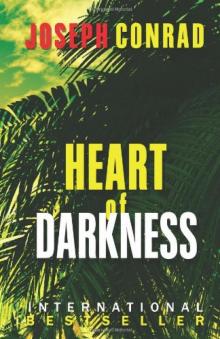 Heart of Darkness
Heart of Darkness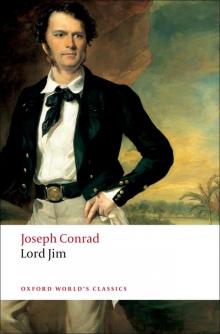 Lord Jim
Lord Jim The Nigger of the Narcissus (Echo Library)
The Nigger of the Narcissus (Echo Library)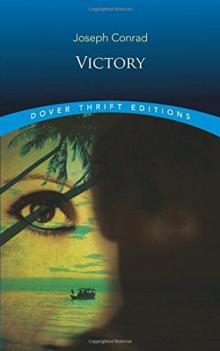 Victory (Dover Thrift Editions)
Victory (Dover Thrift Editions) Secret Agent
Secret Agent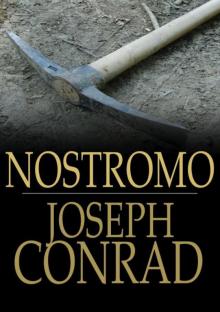 Nostromo
Nostromo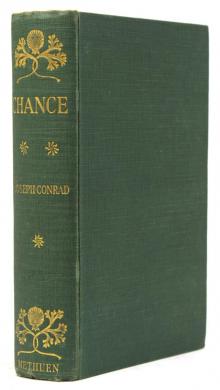 Chance: A Tale in Two Parts
Chance: A Tale in Two Parts Youth
Youth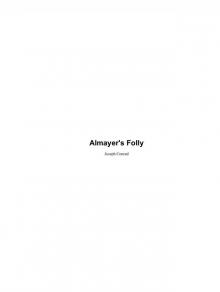 Almayer's Folly
Almayer's Folly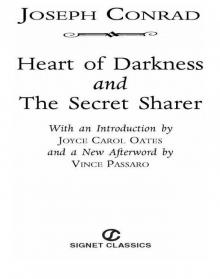 The Heart of Darkness and the Secret Sharer
The Heart of Darkness and the Secret Sharer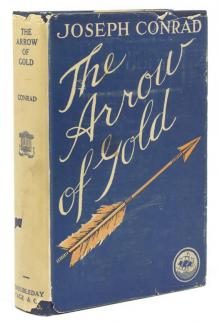 The Arrow of Gold: A Story Between Two Notes
The Arrow of Gold: A Story Between Two Notes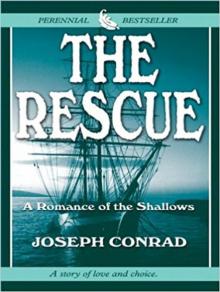 The Rescue: A Romance of the Shallows
The Rescue: A Romance of the Shallows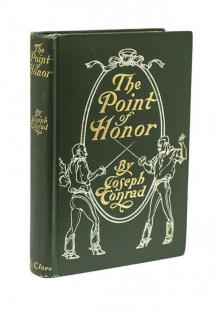 The Point Of Honor: A Military Tale
The Point Of Honor: A Military Tale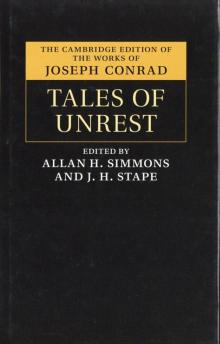 Tales of Unrest
Tales of Unrest Under Western Eyes
Under Western Eyes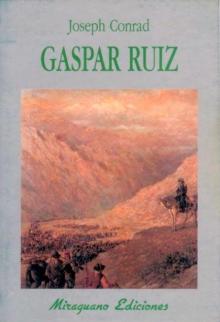 Gaspar Ruiz
Gaspar Ruiz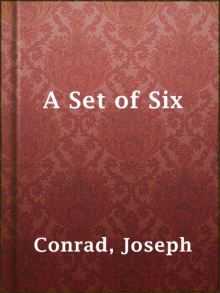 A Set of Six
A Set of Six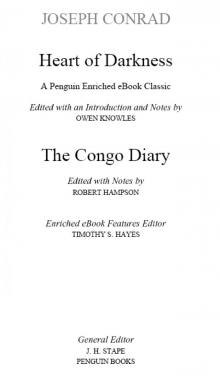 Heart of Darkness and the Congo Diary (Penguin Classics)
Heart of Darkness and the Congo Diary (Penguin Classics)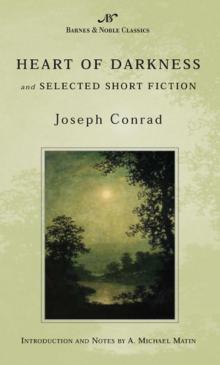 Heart of Darkness and Selected Short Fiction
Heart of Darkness and Selected Short Fiction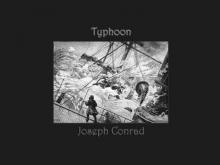 Typhoon
Typhoon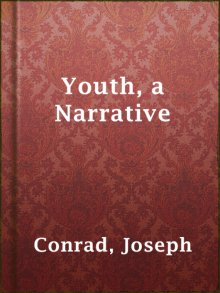 Youth, a Narrative
Youth, a Narrative Tomorrow
Tomorrow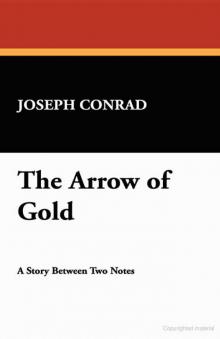 The Arrow of Gold
The Arrow of Gold The Shadow Line: A Confession
The Shadow Line: A Confession The Rescue
The Rescue Victory (Echo Library)
Victory (Echo Library) The Brute
The Brute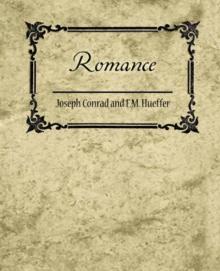 Romance
Romance A Personal Record
A Personal Record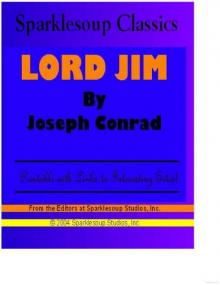 Lord Jim: A Tale
Lord Jim: A Tale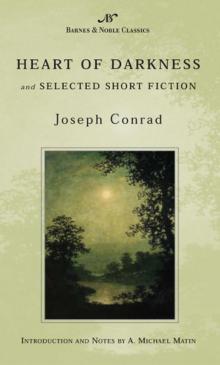 Heart of Darkness and Selected Short Fiction (Barnes & Noble Classics Series)
Heart of Darkness and Selected Short Fiction (Barnes & Noble Classics Series) Within the Tides
Within the Tides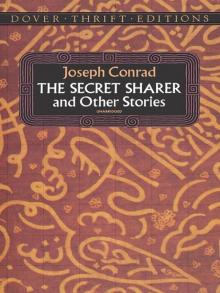 The Secret Sharer and Other Stories
The Secret Sharer and Other Stories Falk
Falk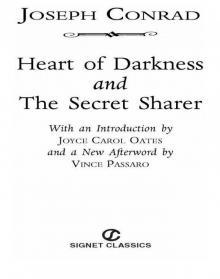 Heart of Darkness and The Secret Sharer
Heart of Darkness and The Secret Sharer Chance
Chance An Anarchist
An Anarchist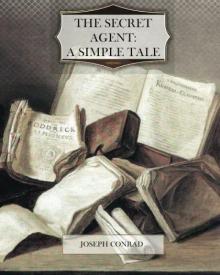 The Secret Agent: A Simple Tale
The Secret Agent: A Simple Tale The Secret Agent
The Secret Agent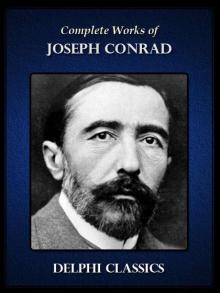 Complete Works of Joseph Conrad (Illustrated)
Complete Works of Joseph Conrad (Illustrated)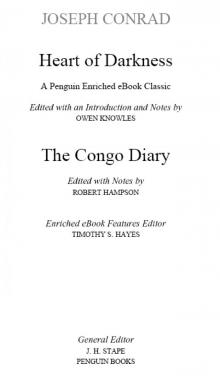 Heart of Darkness and the Congo Diary
Heart of Darkness and the Congo Diary Notes on Life & Letters
Notes on Life & Letters Typhoon (Single Story)
Typhoon (Single Story)